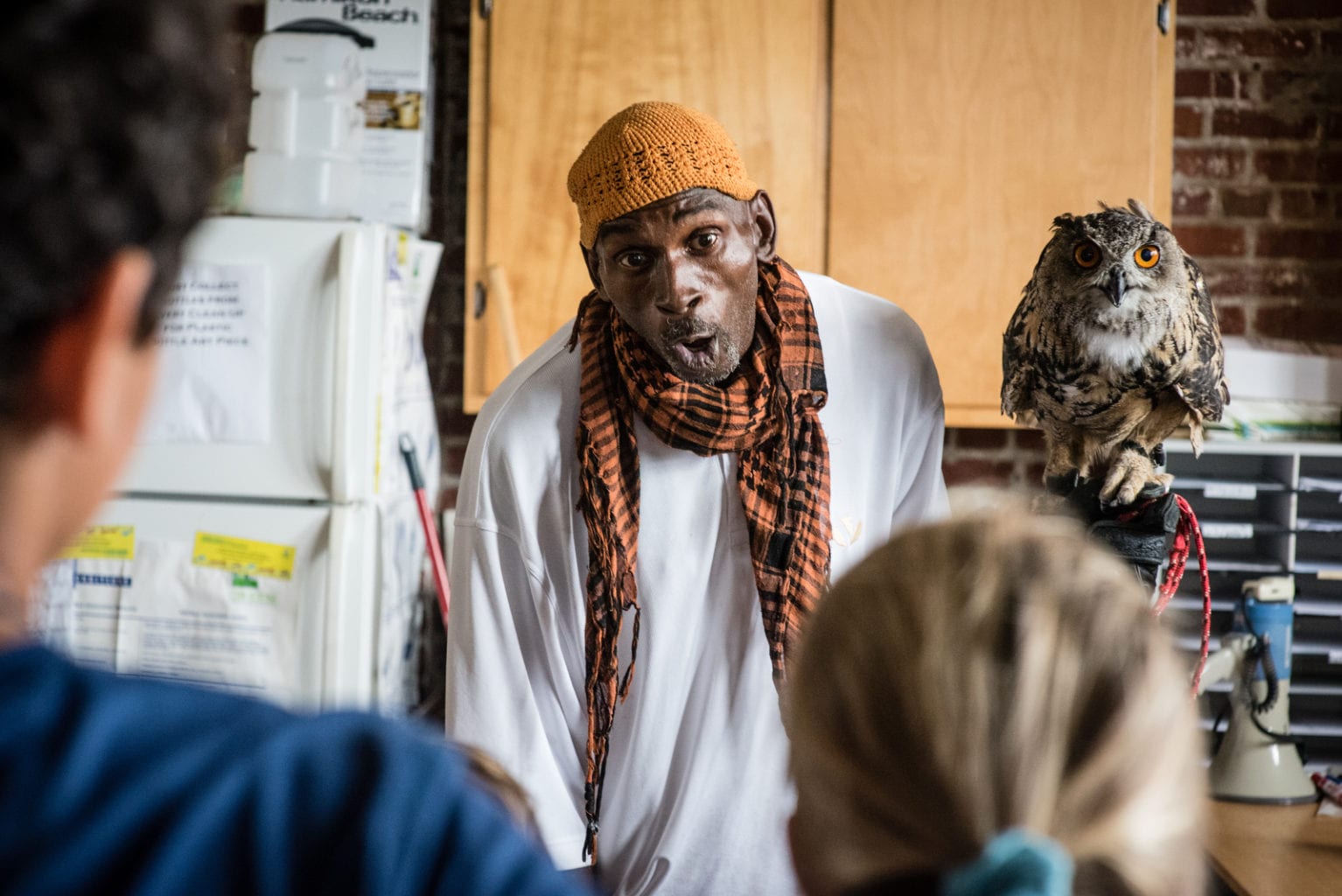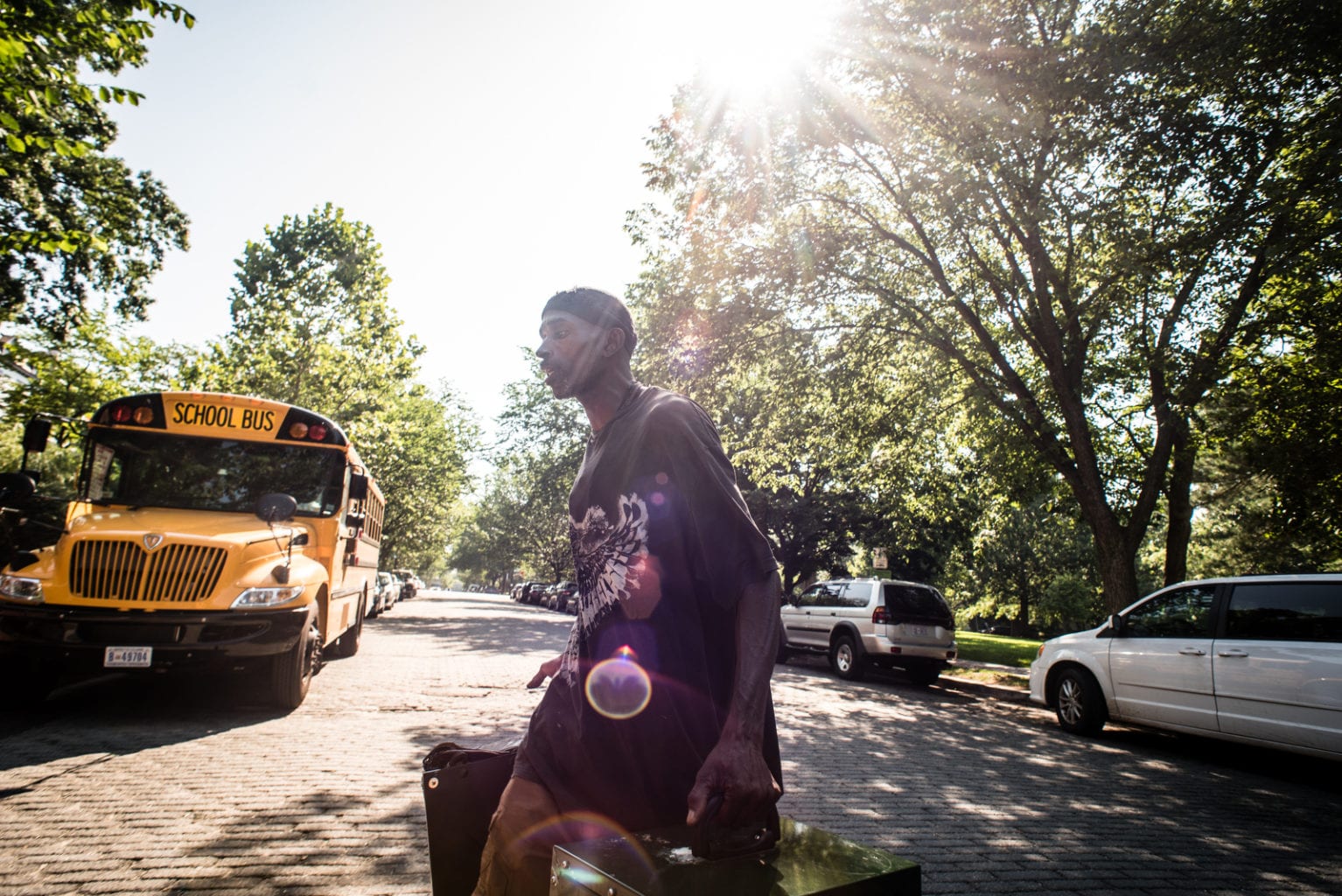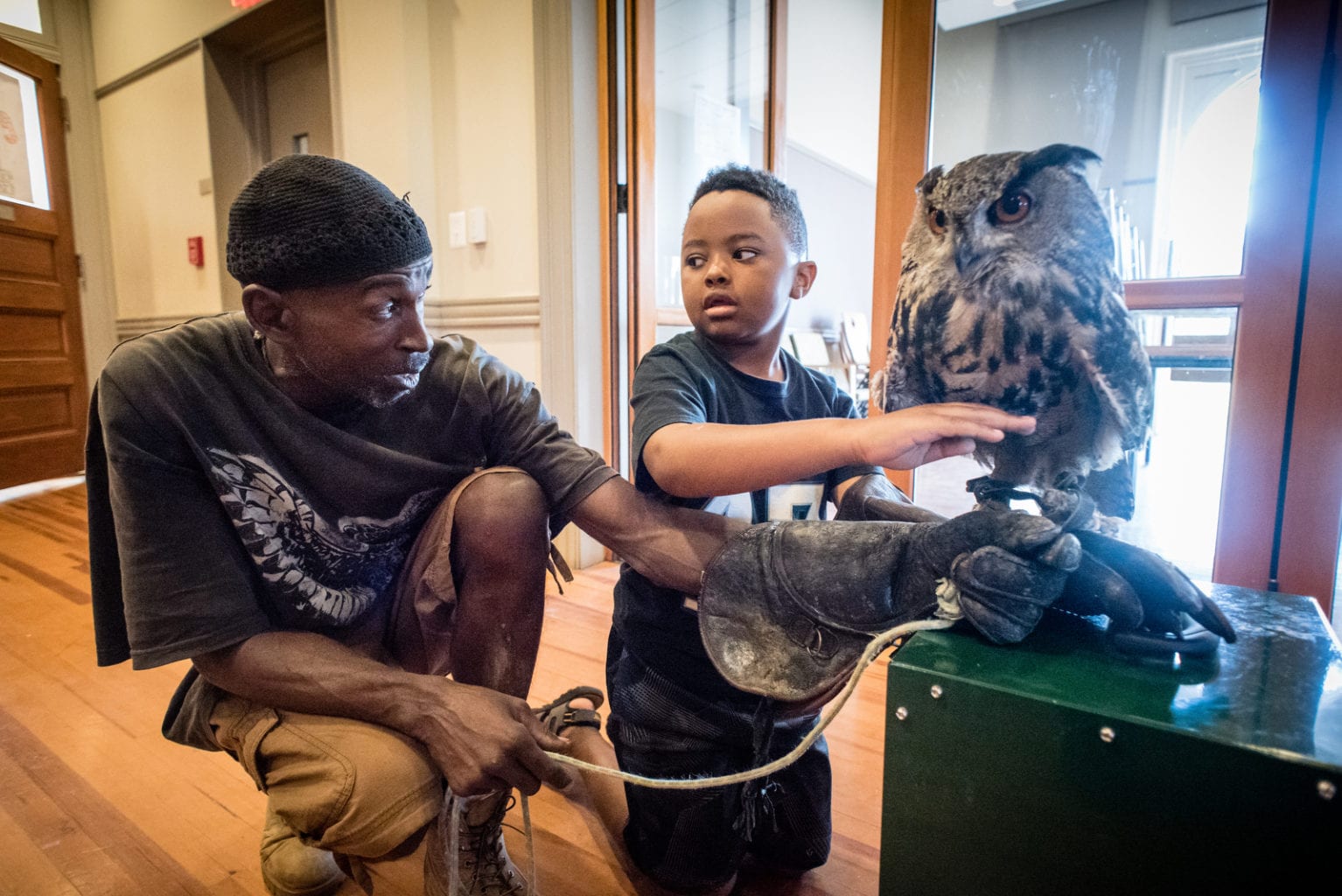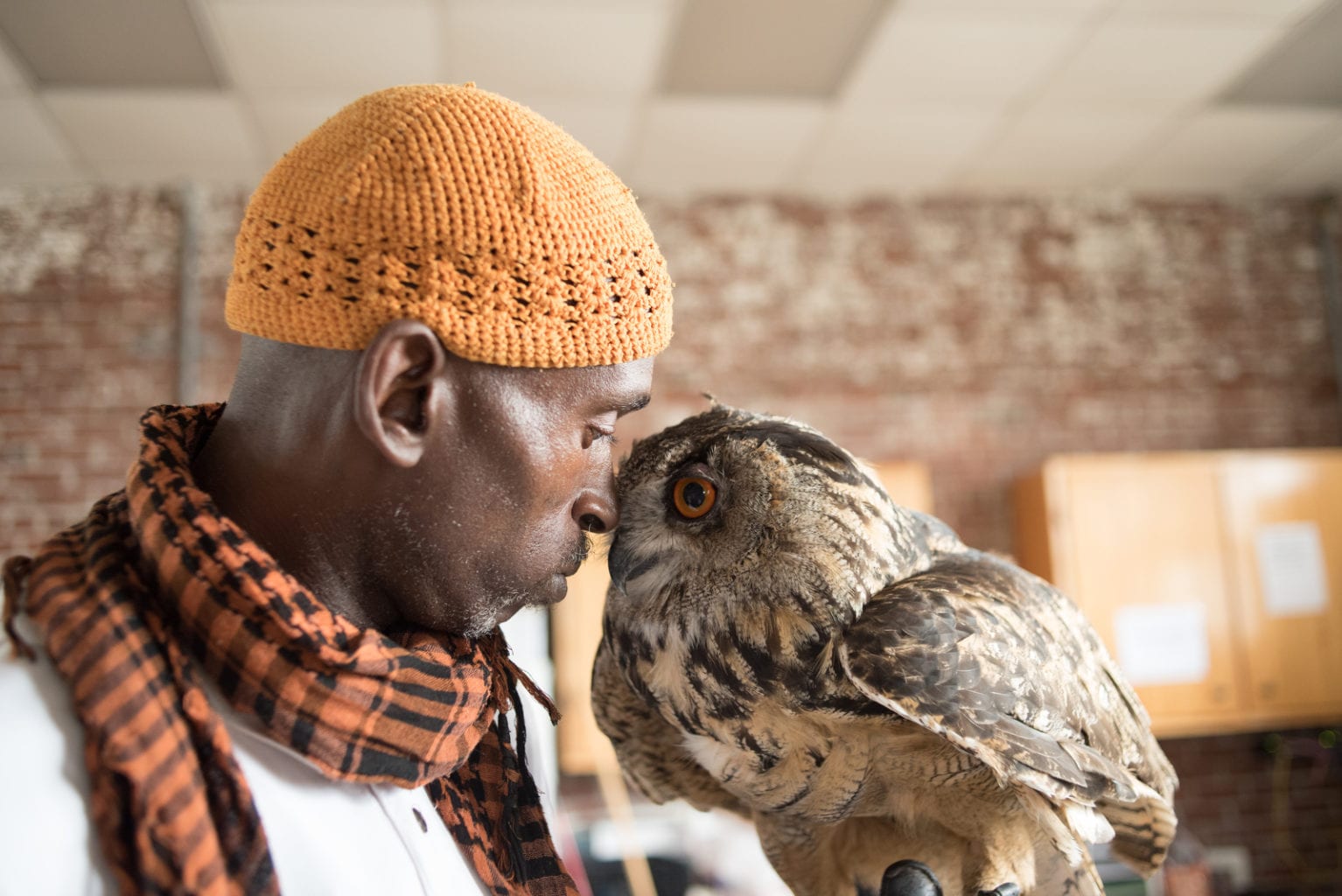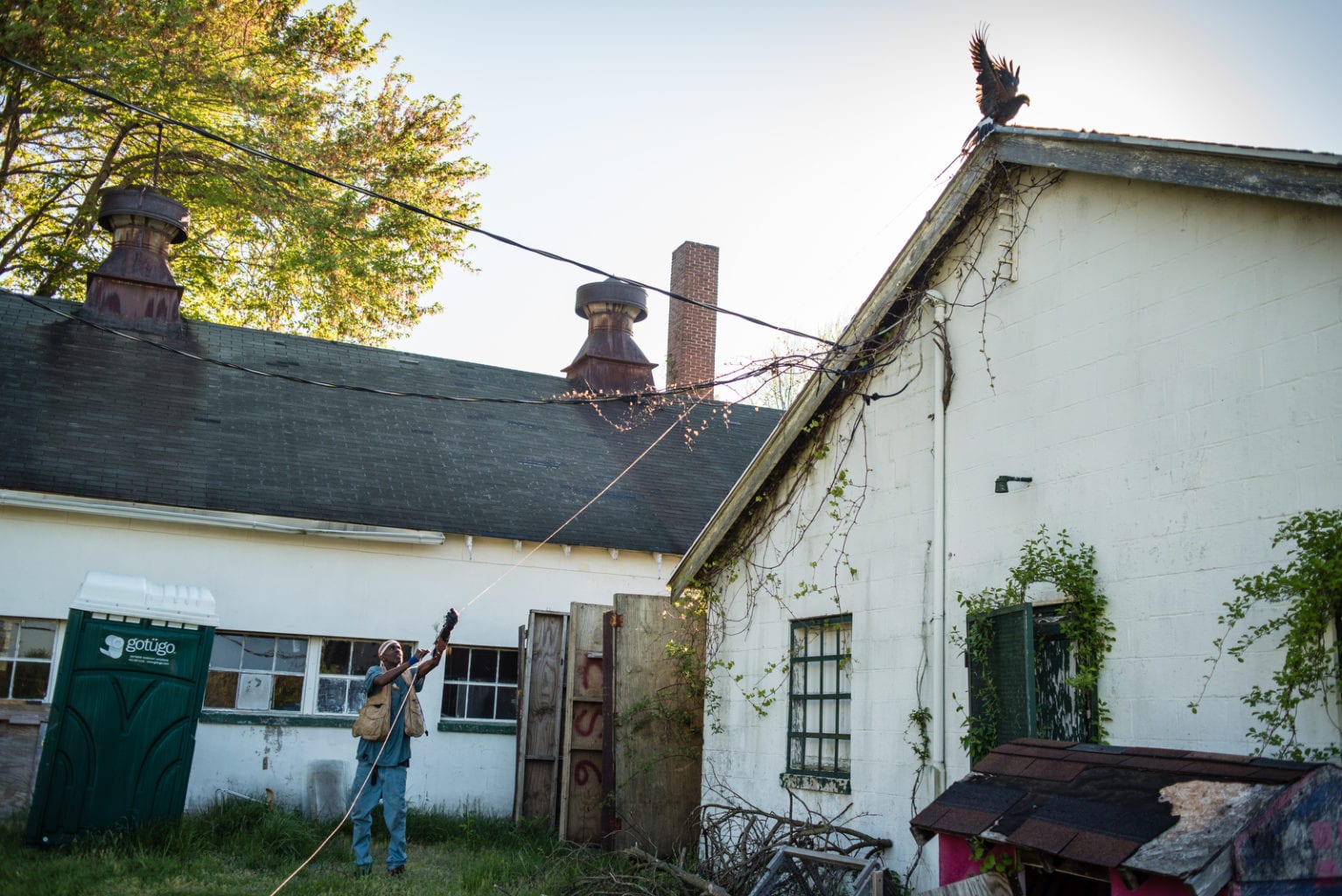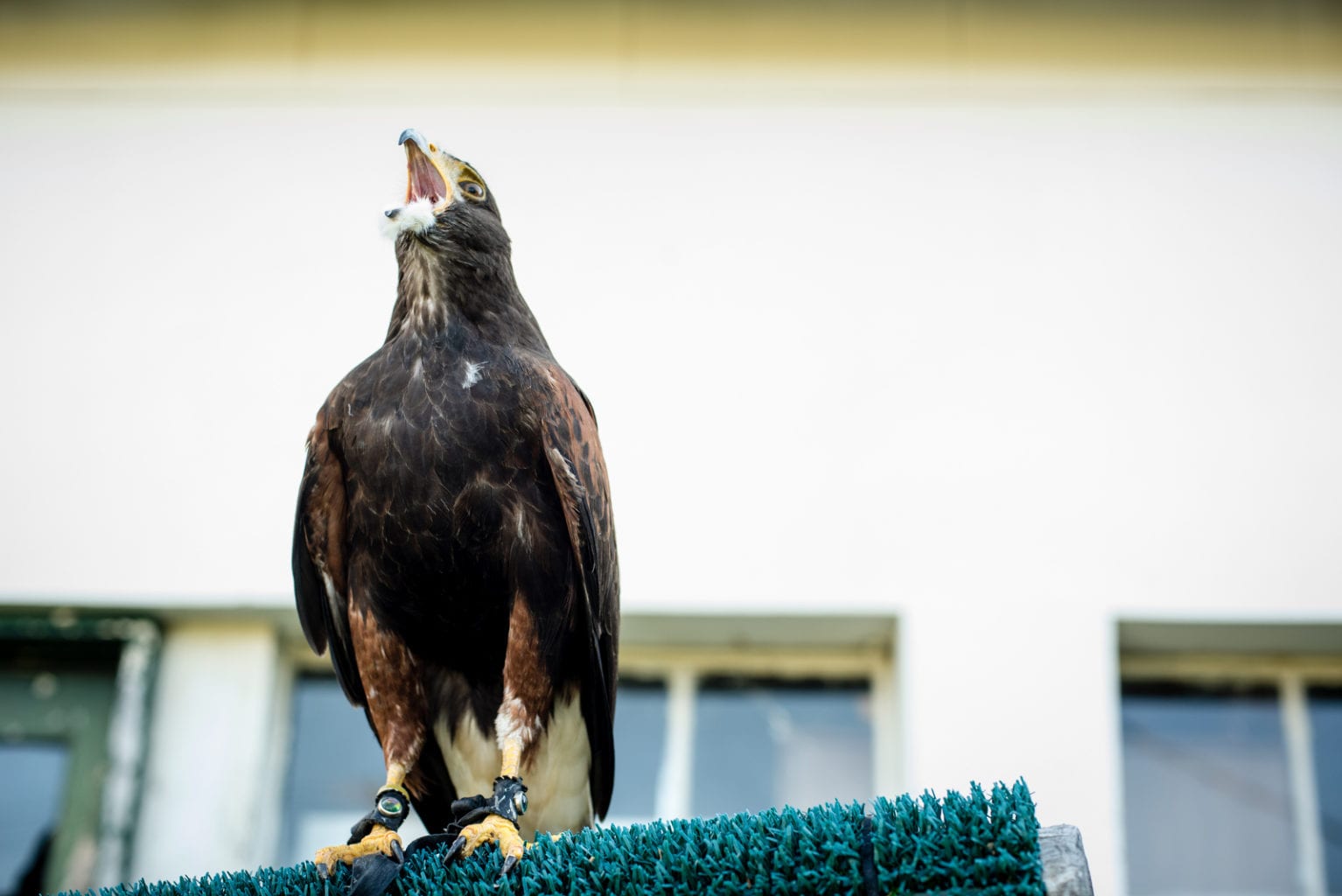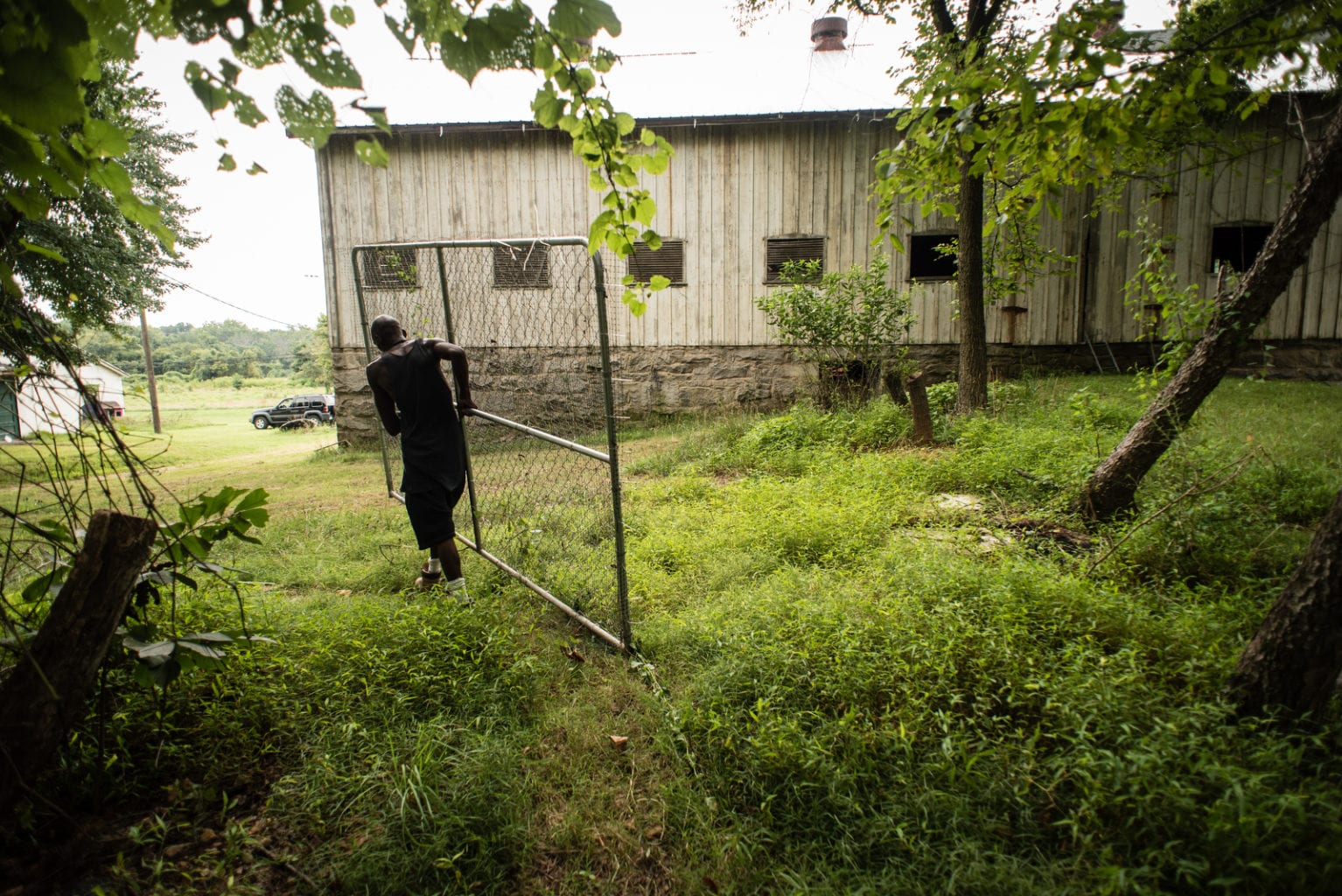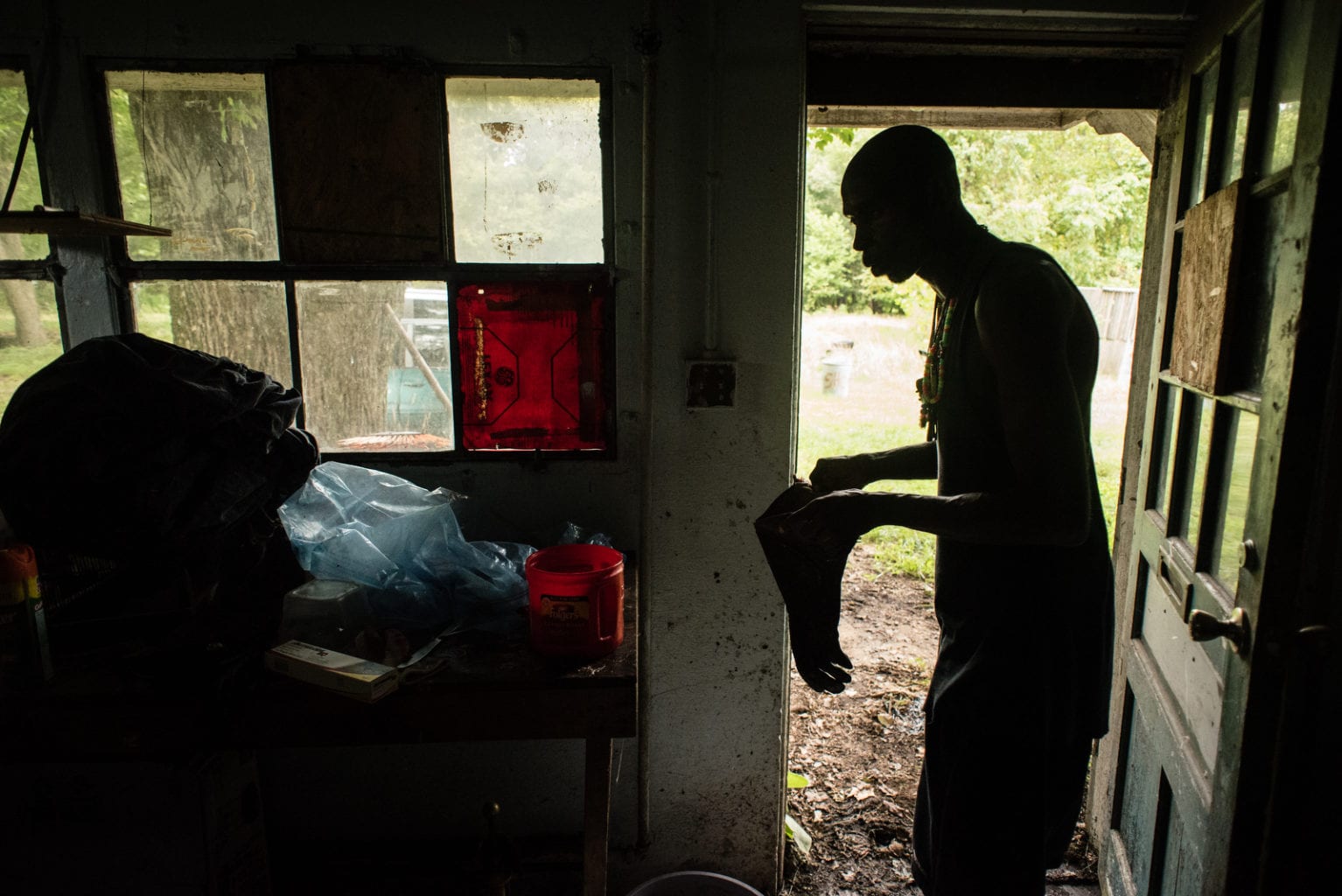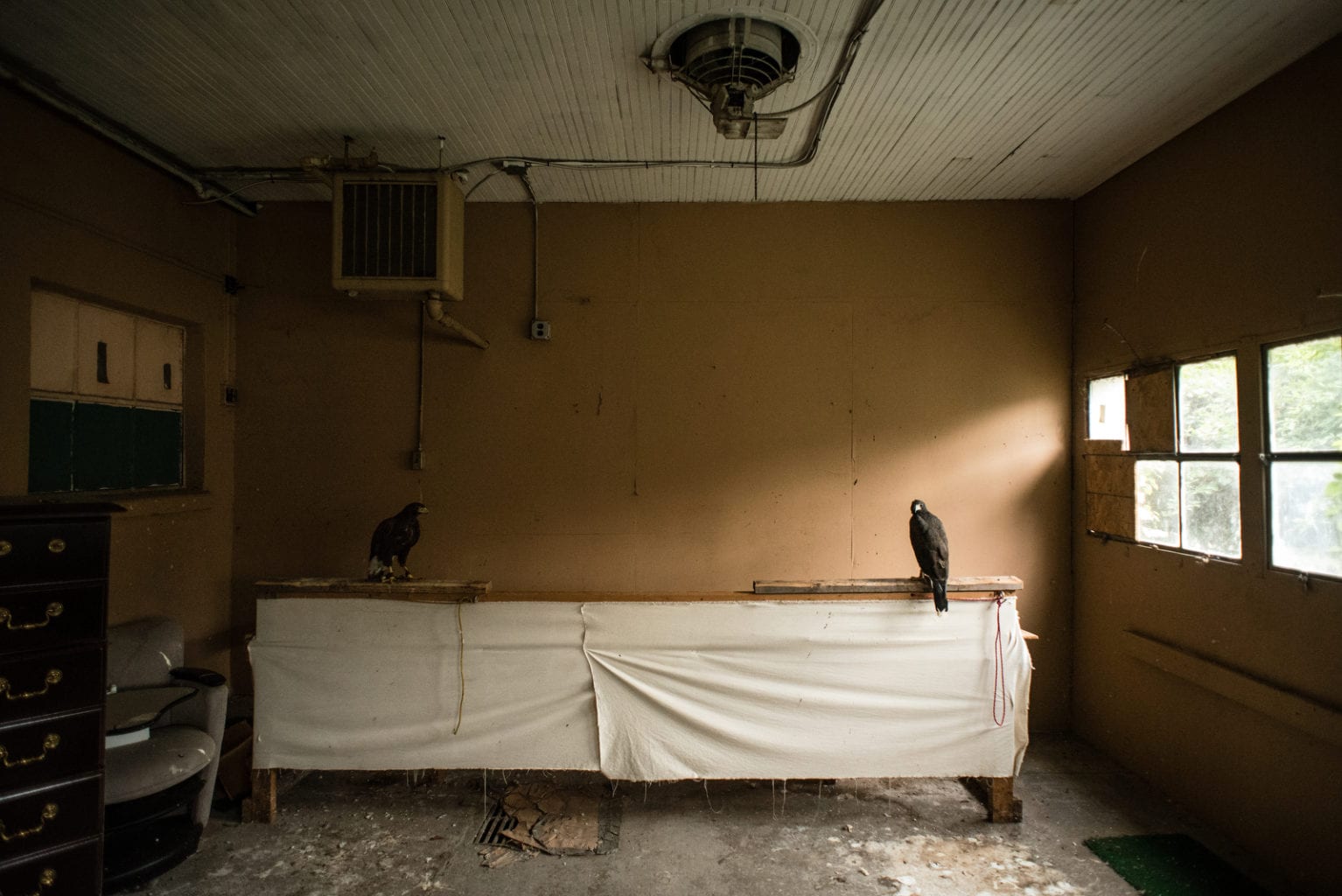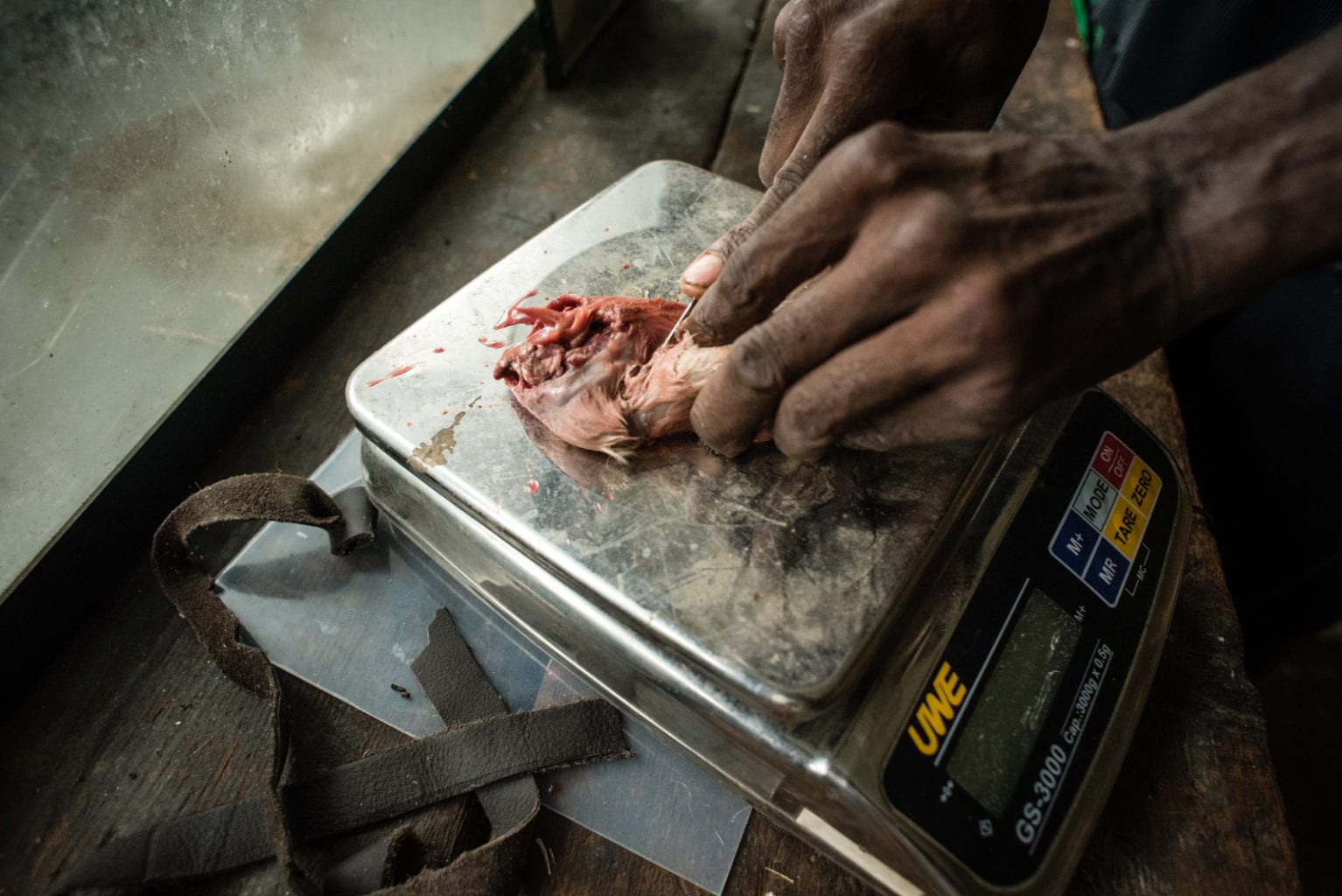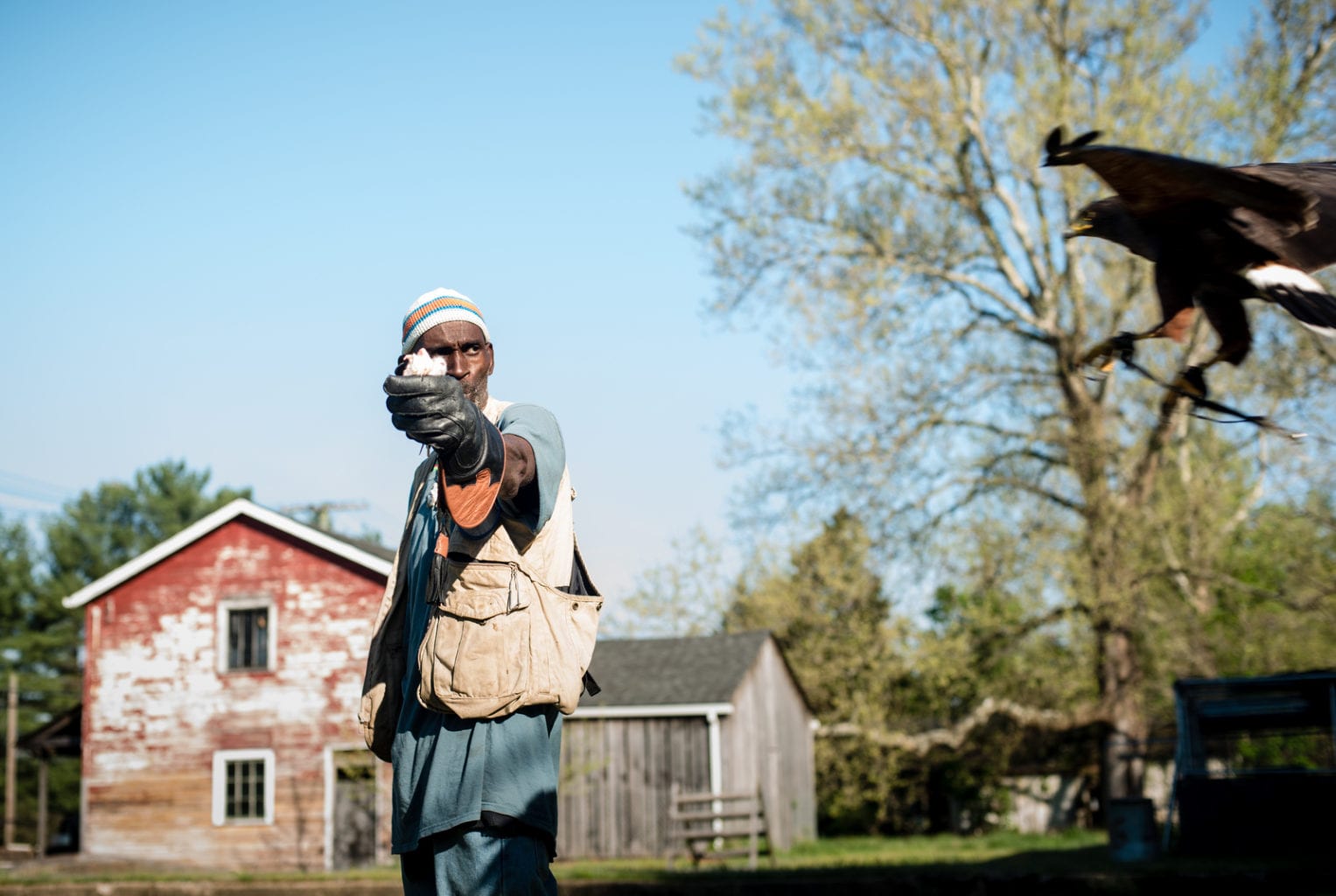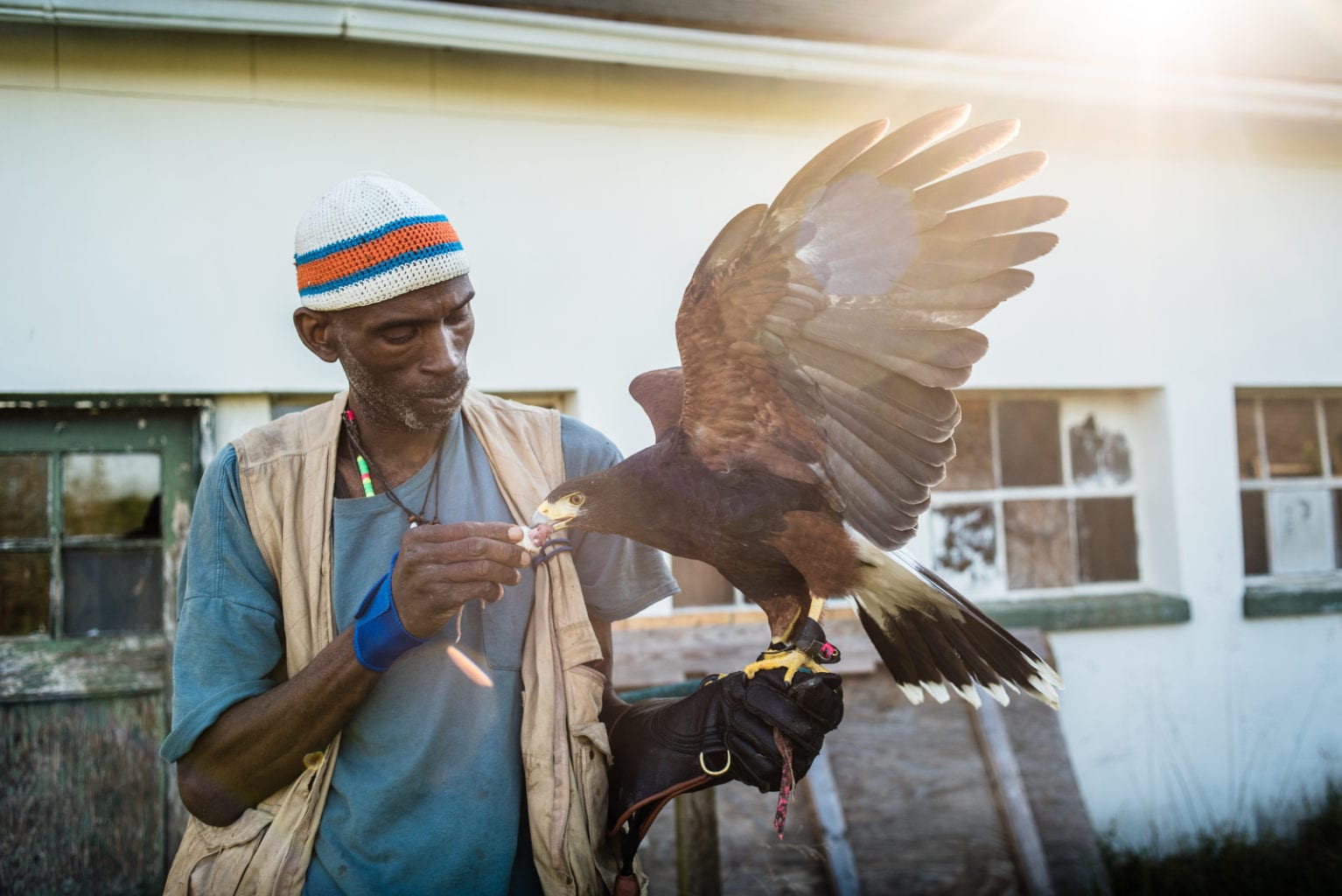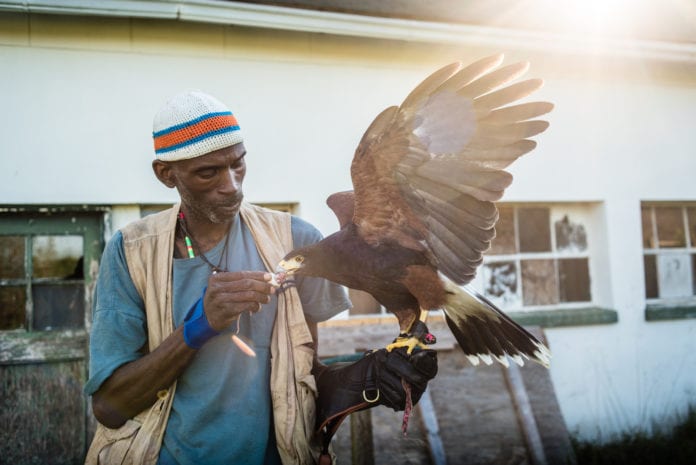Rodney Stotts is an unlikely figure standing before the room full of young campers. Tall and gaunt in a black T-shirt and shorts, in worn Timberlands, he stands with a large owl perched on his gauntleted hand. He explains that Mr. Hoots, a Eurasian eagle owl, is an unreleasable bird that he has owned and taken care of for more than 20 years. Stotts moves his arm and Mr. Hoots spreads his wings and flaps hard, creating a breeze over the grade-schoolers and eliciting gasps as the children laugh in nervous amazement. His demeanor is serious, but he softens his tone a little for the kids. Eventually, a few of the adventurous ones come up to touch Mr. Hoots, and Stotts melts just a little more as he explains his love for the birds.
Stotts’ journey to master falconer and his position as raptor program coordinator for Wings Over America, part of the nonprofit Earth Conservation Corps, started when he was a young man growing up in Southeast Washington during the height of the crack cocaine epidemic. That period saw the district dubbed the “murder capital” for several years running during the late 1980s and ’90s. Stotts, now 48, recalls the part he played during those years. “Actually, I’d been selling drugs for almost 14 years before I ever got locked up on a drug charge. I used to sell crack and pills and stuff.”
When mandatory minimum sentences for crack were instituted in the ’90s, Stotts switched to weed, he said. When he was arrested, he faced five years but ended up serving five months in jail with two years’ probation. He was 31 years old and had already run the raptor program at Earth Conservation Corps but had left after a falling-out with a supervisor. He had another job, but said the real money came from the drugs.
He eventually got out of the drug life because of his mother and his daughter. “My daughter was little, and she just looked at me one day and she said, ‘Dad, I love you.’ And I was just sitting there and I was saying to myself, I want to hear that for a long, long, long time, and what I was doing, I wouldn’t.” His mother, who was addicted to crack herself for a while, would always jump when she heard a police car or ambulance and would check to see if all her children were accounted for.
Stotts realized all he really needed was to see his mother happy. “So I stopped. I slowly [left] the drug life … left that alone and just worked. The animals helped change me, which in turn let my mom see something that I wanted to see before she left here. So when she died three years ago, I know she was proud of what I was doing. That’s the biggest thing that made [me] want to change.”
His birds were a crucial part of that change. “The first time a bird flew to me and landed on my glove … there’s no food, sex, drug, adrenaline rush … I don’t know what you want to call it, but there’s nothing that can compare to it,” Stotts said. He returned to work at Earth Conservation Corps, where he’s worked with injured birds and does raptor presentations and other conservation work. He’s especially proud of the work he and the nonprofit did to restore the bald eagles to the Anacostia River; from 1994 to 1997, they released 16 bald eagles. “So the nesting pair of eagles that people see along the Anacostia and out through the Chesapeake now started from the original 16 bald eagles that we originally released,” he said.
Stotts’ desire to learn more about the raptors is what pushed him to become a falconer. He didn’t want to work only with injured birds. “So when I first said I wanted to do it, everyone started looking at me like I was crazy.” He needed a sponsor to pursue his falconry license but was met with racist skepticism. “Yeah, this white guy told me that … black people don’t fly birds, y’all eat them. These [are] hawks. These ain’t chickens. I met him like two years later and he said, ‘You’re Rodney. That was me on the phone that day. You know, I was joking.’ I said, ‘That bird right there? That one is mine. So I wasn’t.’ ”
Stotts created his own nonprofit, Rodney’s Raptors, to address what he saw as a flaw in the work he did for Wings Over America: He could work with youths only after they had been adjudicated and had to turn away young people who showed interest but were never in trouble. He saw a parallel in the way he worked with injured birds, rehabbing and only sometimes releasing them. Most raptors perish in their first year. As a falconer, he could trap a wild bird, train it, help it get through the winter, then release it stronger and fitter. “I wanted to start getting birds before they got injured so that we can do the transformation of getting you before you got hurt, helping you to get yourself on track and then releasing you, because 85 to 90% of the birds die in their first year. Eighteen-year-olds to 21, before they become that age, usually have a criminal record, been shot, [are] in the system in some way, shape, form or fashion. So I wanted to be able to get to them the same way with the birds — before they got hurt, before they got locked up — and then release them and let them grow.”
Sometimes, Stotts will just take his birds out into the city. It’s meaningful to him when somebody looks out his window and sees a hawk land on a black guy’s arm. “Everybody’s not going to be 50 Cent, everybody is not going to be LeBron James, everybody is not going to be Colin Kaepernick or whoever in the NFL. Everybody’s not going to do that,” he said. He cautioned that he doesn’t view himself as a role model. “I’m not the first black falconer. I’m not the first black person to hold a bird. I’m not first any of that. So to me, I don’t look at it like that because then … you’re not humble anymore. The minute you become happy, and you this and that, you start to take it for granted and don’t understand that that was a blessing. To be able to do what I do is a blessing for me.”
Despite this work, Stotts prefers the company of animals to people. “It’s like I have Asperger’s when it comes to people because I just don’t want to talk to them. I don’t want to be around them. They just irritate me. If I had the option of being around all animals, all the time, and no people? Give me my animals. Because I know that this animal that’s snarling at the cage and doing all of that, I have to earn its trust, and when I earn its trust, it’ll never do that to me again. That person that I’ve earned their trust, which I thought I did, they’ll stab you in the back in a heartbeat, throw you under the bus in a minute. So no animal is going to say, ‘Hey, Rodney did it,’ and bring the police to you. They’re going to run with you.” Stotts knows where he is most comfortable. “Give me my animals. I love my animals.”
You can learn more about Rodney’s Raptors at https://rodneysraptors.webs.com.
